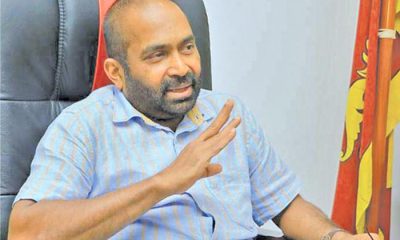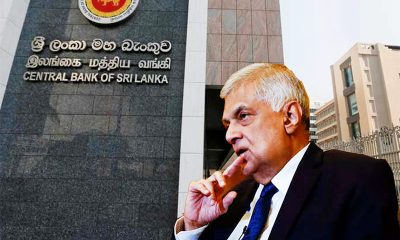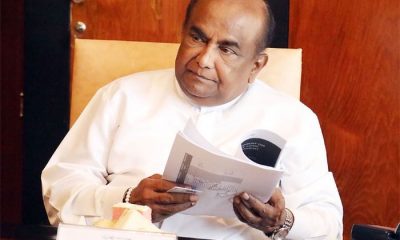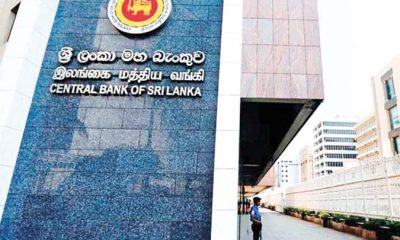Business
National planning comes centre stage at Gamani Corea Foundation forum
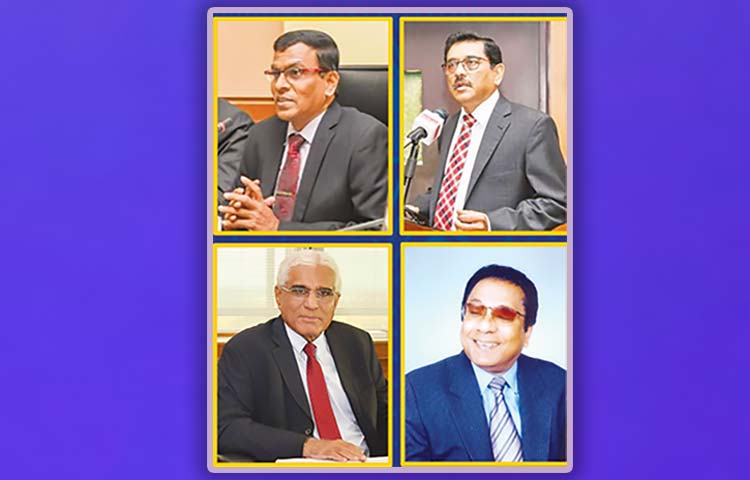
By Lynn Ockersz
‘Sri Lankans are very good at writing plans but nothing very positive has resulted from these efforts over the years. Nevertheless, the country needs a new system of planning and an essential requirement for this is a sound institutional framework coupled with good governance, chairman of the Gamani Corea Foundation (GCF) and a former Director of National Planning Dr. Lloyd Fernando said.
Dr. Fernando was addressing a GCF-initiated and organized symposium on national planning at the BMICH on March 19 titled, ‘Discourse on Lessons Learned through National Planning – The Past, the Present and the Future.’ The wide-ranging and well attended forum brought together policy planners, decision-makers, senior public servants, prominent politicians and thought leaders, among others, who count vitally in national affairs.
A principal aim of the forum was to impress on political parties and their leaders the crucial importance of including national planning in a major way in their manifestoes, now that they are gearing-up for elections expected to be held sometime this year. It was hoped that national planning would underpin all efforts at developing the country.
Among other things, the following matters were mentioned by Dr. Fernando: ‘The 9cs are the backbone of good governance, without which national advancement is unthinkable. Figuring among the Cs are: Participation, Consensuality, Accountability, Transparency, Equity and Inclusiveness, Rule of Law and Strategic Vision.
‘Sections, such as the state, the public sector, the private sector and civil society must work together to bring about economic growth and development, based always on good governance.
‘We need a planned, disciplined approach in taking the country forward. It is crucial that state actors work closely with each other. This applies in particular to the Cabinet, the Planning Council and the Defence establishment. At the end of the day, we need an Administrative Reforms Council. The latter will need to bring under its purview: recruitment policies, minister-Secretary relations, training of public cadre, performance appraisal of state agencies and rewards for performance by public officials.’
‘It is hoped that political leaders would take cognizance of these needs, going forward.’
Speaking on the subject of ‘National Planning Yesterday’, former Governor of the Central Bank of Sri Lanka (CBSL), Dr. Indrajith Coomaraswamy stated the following, among other things: ‘The most comprehensive national development plan to date was formulated under Dr. Gamani Corea in the early fifties. In 1965, the Ministry of National Planning was launched. It discussed all operational aspects in national planning. While a 5 year development plan was initiated in the early seventies to essentially address the issues raised by the youth insurrection of 1971, national planning went out of vogue, as it were, with the liberalization of the economy in 1977. However even in those times, the Dept. of National Planning played a key role.
‘We need to get back to the Committee of Development Secretaries of the seventies which played an important function in development. Besides, it must be ensured that development projects are always in keeping with national priorities.’
Some key points made by CBSL Governor Dr. Nandalal Weerasinghe in his presentation, ‘A Macroeconomic Framework for the Future’, were as follows: ‘In some past times, monetary policy was allowed to be dominated by fiscal policy. This played a role in precipitating our current economic woes.
‘We have a stronger Central Bank now but a huge problem arises when national policies change with the changing of governments. Debt sustainability is crucial, going forward.
‘We need to independently assess the election manifestoes of political parties with regard to their financial feasibility. Likewise, we need a framework for public financial accountability. An institution with proper skills needs to be set up for this purpose. A debt management unit too is a crucial need.’
Director General of National Planning, R.H.W.A. Kumarasiri making an initial and comprehensive presentation titled, ‘National Planning Today’, drew the attention of the audience, among other issues, to the vital importance of a ‘Public Financial Bill’. This is central to state financial discipline.
During Q&A, Eran Wickremeratne M.P. made the following points: ‘Over the past 40 years, the local public sector has been destroyed. This sector must be independent of politicians. Recruitment to the public sector must be in the hands of public servants. We need to invest heavily in the training of public officials. Politicians should not decide on capital expenditure but we need a robust planning process.’
Business
Beira Lake restoration, ‘a crucial urban environmental intervention’
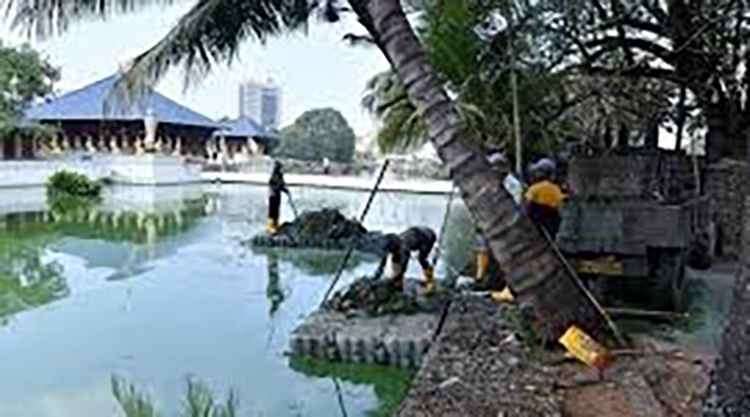
Sri Lanka’s decision to invest Rs. 2.5 billion in restoring the heavily polluted Beira Lake marks one of the most significant urban environmental interventions in recent years, underscoring a growing recognition that ecological rehabilitation is also an economic imperative.
The multi-pronged project—covering the closure of illegal sewage discharge points, large-scale dredging, and the installation of aeration systems—is expected to not only revive aquatic life but also unlock commercial, tourism and real estate value in the heart of Colombo.
Officials say the initiative is designed to transform Beira Lake from a long-neglected liability into a productive urban asset.
A senior official from the Ministry of Environment told The Island Financial Review that untreated wastewater and illegal sewer connections had been the primary contributors to the lake’s degradation for decades. “Closing these illegal sewage points is the most critical intervention. Without that, any dredging or aeration would only offer temporary relief, the official said, adding that enforcement will be carried out in coordination with the Colombo Municipal Council (CMC) and other regulatory agencies.
From a business perspective, the clean-up is being viewed as a catalyst for urban regeneration. Urban Development Authority (UDA) sources noted that a healthier Beira Lake would significantly enhance the attractiveness of surrounding commercial developments, hospitality projects and public spaces. “Environmental remediation directly impacts land values and investor confidence. A clean, living lake changes the entire economic profile of the area, an UDA official said.
The dredging component of the project is aimed at removing decades of accumulated sludge, which has reduced water depth and contributed to foul odours and fish die-offs. According to officials involved in project planning, the dredged material will be disposed of following environmental guidelines to avoid secondary pollution risks—an issue that has undermined similar efforts in the past.
Meanwhile, the installation of modern aerators is expected to improve dissolved oxygen levels, a key requirement for sustaining fish and other aquatic organisms. “Restoring aquatic life is not just about biodiversity; it is about creating a water body that can safely support recreational activities and public engagement, a senior CMC engineer explained.
Economists point out that the Rs. 2.5 billion allocation, while substantial, should be seen against the long-term cost savings and revenue potential. Reduced public health risks, lower water treatment costs downstream, increased tourism activity and higher commercial footfall could deliver returns that far exceed the initial outlay.
By Ifham Nizam
Business
Expectation of positive Q3 corporate results jerks bourse to life

CSE activities kicked off on a negative note initially but later experienced some recovery yesterday because most investors were anticipating positive third quarter result shortly, market analysts said.
Amid those developments, the market indicated mixed reactions. The All Share Price Index went down by 4.13 points, while the S and P SL20 rose by 14.02 points. Turnover stood at Rs 5.17 billion with 11 crossings.
Top seven crossings were reported in Renuka Holdings where eight million shares crossed to the tune of Rs 324 million; its shares traded at Rs 40.50, Tokyo Cement one million shares crossed to the tune of Rs 113 million; its shares traded at Rs 113, Distilleries 1.85 million shares crossed for Rs 111 million; its shares traded at Rs 60, ACL Cables 500,000 shares crossed for Rs 51.5 million, its shares sold at Rs 103 Chevron Lubricants 250,000 shares crossed for Rs 47.5 million; its shares traded at Rs 190, Ambeon Capital 738600 shares crossed at Rs 40.50 each and Melstacope 150,000 shares crossed for Rs 27 million; its shares traded at Rs 180.
In the retail market top seven companies that mainly contributed to the turnover were; Colombo Dockyard Rs 1.26 billion (12 million shares traded), ACL Cables Rs 348 million (3.3 million shares traded), HNB (Non-Voting) Rs 152 million (425,000 shares traded), Hayleys Rs 109 million (507,000 shares traded), Tokyo Cement (Non-Voting) Rs 94 million (989,000 shares traded) Lanka Realty Investments Rs 80 million (1.6 million shares traded) and Sampath Bank Rs 77 million (498,000 shares traded). During the day 135 million share volumes changed hands in 38398 transactions.
It is said that manufacturing sector counters, especially Tokyo Cement and ACL Cables, performed well. Further, Colombo Dockyard became the most preferred share for investors. The Banking sector also performed well.
Browns Beach Hotels said that the company will delist from the CSE, having made arrangements with majority shareholders Melstacope and Aitken Spence Hotel Holdings to buy back shares from minority shareholders at an exit offer price of Rs 30.
Yesterday the rupee was quoted at Rs 309.75/85 to the US dollar in the spot market, from Rs 309.72/77 the previous day, having depreciated in recent weeks, dealers said, while bond yields were down.
A bond maturing on 15.05.2026 was quoted at 8.25/35 percent.
A bond maturing on 15.02.2028 was quoted at 9.00/10 percent, down from 9.05/10 percent.
A bond maturing on 15.12.2029 was quoted at 9.65/70 percent, up from 9.65/69 percent.
A bond maturing on 01.03.2030 was quoted at 9.72/75 percent, from 9.70/76 percent.
A bond maturing on 15.03.2031 was quoted at 9.95/10.00 percent, down from 10.00/10 percent.
A bond maturing on 01.10.2032 was quoted at 10.30/50 percent.
A bond maturing on 01.06.2033 was quoted at 10.72/75 percent, down from 10.70/80 percent.
A bond maturing on 15.06.2035 closed at 11.05/10 percent, down from 11.07/11 percent.
The telegraphic transfer rates for the American dollar were 306.2500 buying, 313.2500 selling; the British pound was 409.9898 buying, and 421.3080 selling, and the euro was 354.1773 buying, 365.5655 selling.
By Hiran H Senewiratne
Business
Ceylon Theatres and British Council present National Theatre Live’s ‘Hamlet’

Ceylon Theatres Limited, in partnership with British Council, is proud to present the first ever screening of National Theatre (NT) Live’s Hamlet starring Hiran Abeysekara in Asia. The first screening will happen at Regal Cinema in Dematagoda (Colombo 9) at 5:30 pm on Sunday, 25 January. Sri Lankan actor Hiran Abeysekera stars in the title role—the first Asian actor to play Hamlet in a National Theatre production.
For Sri Lankan audiences, this screening is both a celebration and a homecoming. It reflects the British Council’s long-standing commitment to nurturing creative talent, widening access to world-class culture, and building deep, people-to-people connections between Sri Lanka and the United Kingdom through theatre and the creative arts. To celebrate the inaugural screening, the British Council is inviting winners and runners-up of the All-Island Inter-School Shakespeare Drama Competition, alongside drama teachers and university actors, to attend the premiere.
Further details on screening dates, venues, and ticketing can be found at: https://ceylontheatres.com/ and on the British Council Instagram page https://www.instagram.com/britishcouncilsrilanka/ or call: 0766192370
-

 Editorial3 days ago
Editorial3 days agoIllusory rule of law
-

 News4 days ago
News4 days agoUNDP’s assessment confirms widespread economic fallout from Cyclone Ditwah
-

 Business6 days ago
Business6 days agoKoaloo.Fi and Stredge forge strategic partnership to offer businesses sustainable supply chain solutions
-

 Editorial4 days ago
Editorial4 days agoCrime and cops
-

 Features3 days ago
Features3 days agoDaydreams on a winter’s day
-

 Editorial5 days ago
Editorial5 days agoThe Chakka Clash
-

 Features3 days ago
Features3 days agoSurprise move of both the Minister and myself from Agriculture to Education
-

 Features2 days ago
Features2 days agoExtended mind thesis:A Buddhist perspective


